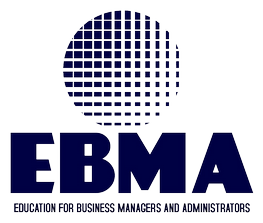Overview
Level 7 Postgraduate Diploma in International Business Law provides a coherent programme of study that enables law graduates, lawyers and those with a relevant first degree to develop a detailed knowledge and understanding of international business law at postgraduate level. This course is available to students from both a legal and non-legal background. The aim of this programme is to develop legal skills, analysis, logical thinking and knowledge that can be usefully applied in further study, the legal profession and public service. It provides students with an understanding of law in the context of business to equip them with the abilities needed to work with advanced issues.
Learning Objectives
By the end of the qualification, learners will be able to:
- Understand a wide range of subjects in international business law.
- Develop an understanding of a legal framework that governs international business transactions.
- Demonstrate an understanding of the commercial trust law, company law, international trade law, intellectual property law, and law of financial crimes in global business.
- Develop research skills and the ability to write on key areas in international business law.
- Critically analyse legal texts.
Structure
- International Trade Law
- Commercial Trust Law
- Industrial and Intellectual Property Law
- Law of Financial Crimes
- Company Law
- Legal Research and Research Methods
- Corporate Governance – Principles and Practices
Entry Requirements
- An undergraduate law degree or an equivalent qualification is usually necessary for meeting the entry requirements.
- Graduates from related disciplines may also apply for the Postgraduate Diploma in International Business Law if they provide evidence that they have relevant skills to study it.
Assessment
The methods for assessing student performance can be broadly summarised under coursework by following instructions for coursework.
Learners are required to develop an assignment of each unit. Assignments are important part of learners’ work at the Centre. There are strict rules about:-
- Plagiarism – using another person’s words out of a book/ journal article/ conversation/ lecture without formally acknowledging it,
- Referencing – how to reference and refer to another person’s work in your written work so you avoid plagiarism,
- Word length of essays and reports,
- Presentation and style of a report, including the style of language used, and
- Learners are required to sign a declaration of authentication to confirm that the work is their own and that any assistance given and/or sources used have been acknowledged.
All learning outcomes must be assessed using assignment appropriate to the assessment of knowledge, understanding and skills. The Qualifications within this suite are vocational because they support a Learner’s career progression. Assessments will contain a question strand for each of the given unit’s Learning Outcomes. The assignment tasks will address the LO (Learning Outcome) and AC (Assessment Criteria) requirements. Within assignments there will always be requirements for Learner’s to engage with important and relevant theory that underpins the subject area
There must be valid, sufficient, and authentic evidence of all the assessment criteria.
Submitted assignments should be marked by an assessor. In order to pass a unit, a learner must achieve 40% marks in each assignment.
Assessors must plan, gather and then assess learner’s evidence according to level descriptors’ requirements and on the basis of Pass/Fail criteria. These should be made available for internal verification to the centre Internal Quality Assurer (IQA).
EBMA External Quality Assurer (EQA) undertakes external moderation to monitor the assessment, internal moderation processes within the centre to make sure the assessment remains fit for purpose, and that the assessment process and practices by the centre continue to meet assessment standards requirements.
Fees
EBMA only charges registration fees from the centre that includes quality assurance of assessment and certification.
Support and Training
Careers
- International commercial law
- Law of financial crimes
- International trade law
- Company law
- Industrial and intellectual property law
- Governance Consultant








